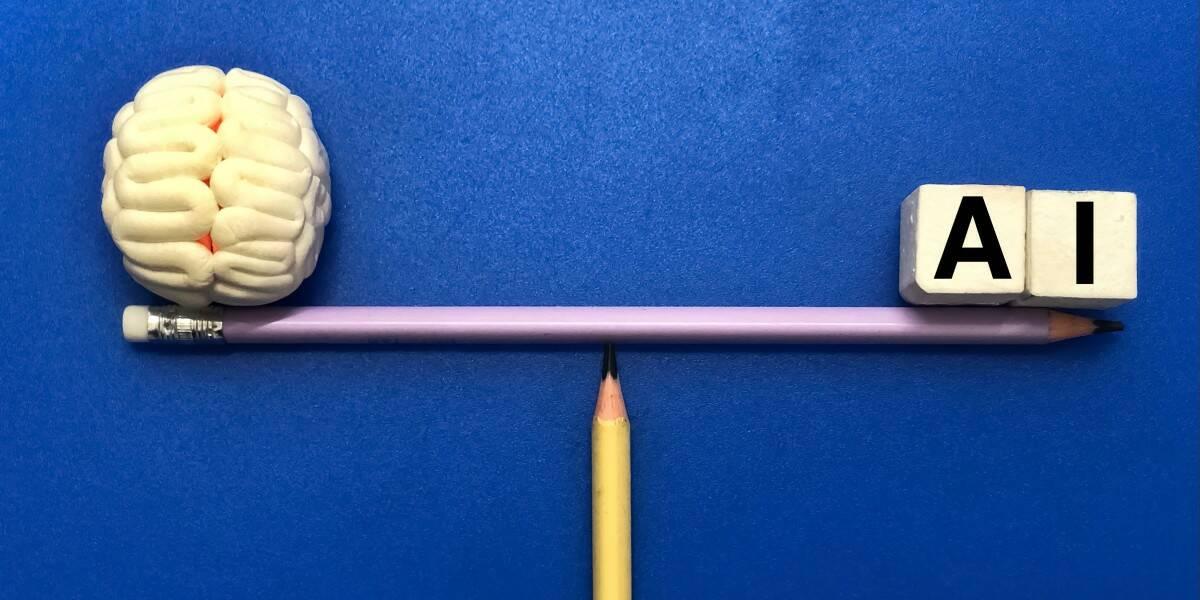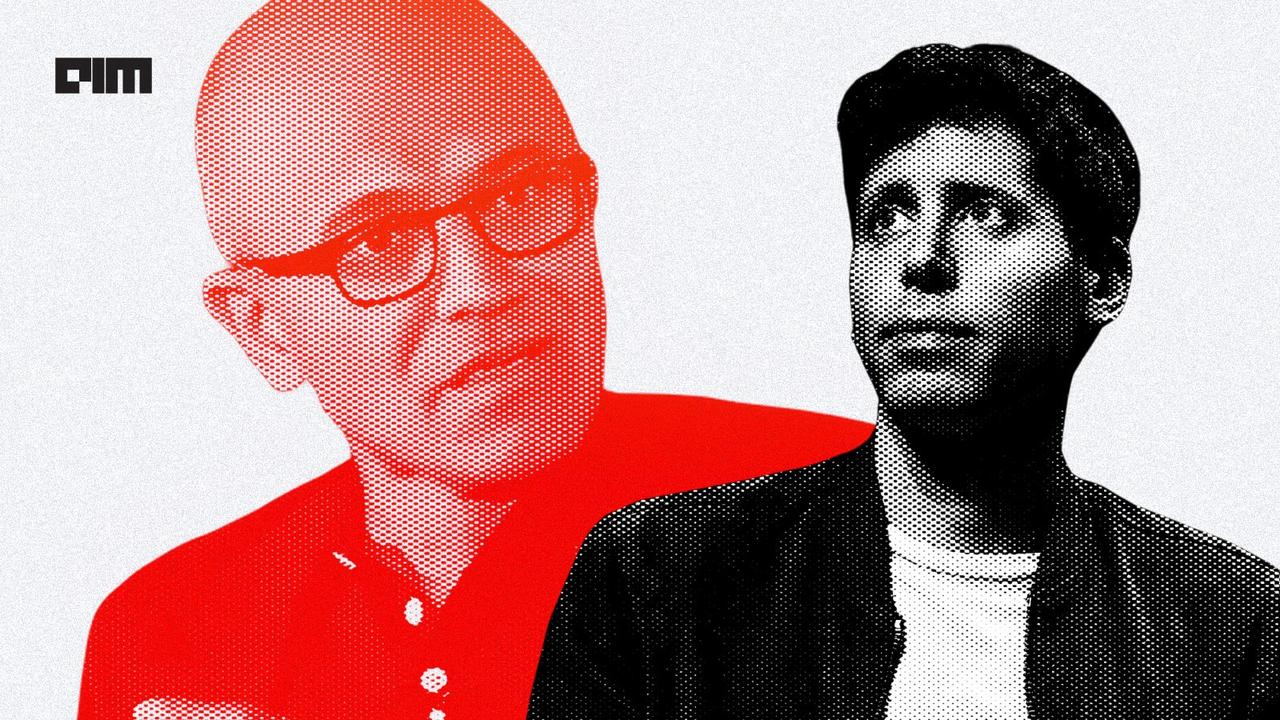Microsoft Forms Advanced Planning Unit to Study AI's Future Impact
3 Sources
3 Sources
[1]
Microsoft is creating an "Advanced Planning Unit" to study AI.
Just weeks after Microsoft established a new AI engineering division, the company's AI head Mustafa Suleyman announced that the company is recruiting for another team that will examine how AI will change our world. Here's how a job listing describes the new unit: The Advanced Planning Unit will operate in the Office of Microsoft AI's CEO and will combine cutting edge research across Microsoft and beyond, explore and articulate a range of possible scenarios for the future of AI, craft concrete product recommendations, and suggest planning outcomes based on them.
[2]
Microsoft forms Advanced Planning Unit to support its AI efforts - SiliconANGLE
Microsoft forms Advanced Planning Unit to support its AI efforts Microsoft Corp. is forming a new business unit to study the impact of artificial intelligence and create product development recommendations. Mustafa Suleyman, the Chief Executive Officer of the company's Microsoft AI group, announced the new team today in a series of posts on X. It will be known as the Advanced Planning Unit, or APU for short. The unit is set to operate as part of the Office of Microsoft AI's CEO. The tech giant formed Microsoft AI last year to lead the development of its consumer-focused AI products. The group is responsible for, among others, the Copilot family of AI assistants and Bing. Suleyman took the helm of Microsoft AI last March after the company hired most of the employees at Inflection AI Inc., an OpenAI rival he had co-founded in 2022. The new APU unit's first task will be to study the societal impact of AI. According to Microsoft job postings, staffers will analyze what changes the technology could drive in areas such as health, work and education. "AI is transforming how we work, live, and connect," reads one of the postings. "We want to understand how and what it implies for us working on AI today." The unit is also set to prepare product development recommendations that will help guide Microsoft's engineering roadmap. Those recommendations will be shared with product managers, developers, executives and other staffers. APU is recruiting technologists, economics, psychologists and other professionals. One job posting, for a technology research program manager, reveals that the unit's work will focus on not only AI but also several other areas. The list includes quantum computing, nuclear energy and semiconductors. It's believed that future quantum computers will be capable of performing certain mathematical calculations significantly faster than classical computers. AI models process data using mathematical calculations known as matrix multiplications and additions. As a result, quantum hardware could theoretically be used to speed up AI workloads. Microsoft maintains an in-house quantum computing research program. The company has explored the possibility of using theoretical particles called Majorana zero modes as qubits. Nuclear energy, another focus area listed in the APU job posting, is an increasingly important priority for Microsoft. Last year, the company inked a deal with a utility to renovate and reopen the Three Mile Island nuclear power plant. The facility will generate electricity for Microsoft data centers, where a growing amount of power is being consumed by AI accelerators. The APU's formation comes days after Microsoft detailed another AI-related organizational change. The company launched a new group, CoreAI - Platform and Tools, that will develop technology for products such as GitHub Copilot. It's led by Jay Parikha, a former Meta Platforms Inc. engineering executive who joined the company last year.
[3]
Microsoft is forming a new unit to study AI's impacts | TechCrunch
Microsoft says that it's creating a new unit, the Advanced Planning Unit (APU), within its Microsoft AI business division that will help the company understand the societal, health, and work implications of AI the company hopes to build. Microsoft AI, which encompasses Microsoft's Copilot, Bing, and Edge products, is becoming core to Microsoft's growth strategy -- much to the chagrin of some shareholders. This week, the company reported that its capex for Q4 2024 topped $22.6 billion, a new record high, which CEO Satya Nadella said was necessary to meet demand for Microsoft's AI and cloud offerings. "As AI becomes more efficient and accessible, we'll see exponentially more demand," Nadella during the company's Q4 earnings conference call on Tuesday. The APU will operate out of the office of Microsoft AI's CEO, Mustafa Suleyman, and combine "cutting-edge research" to "explore and articulate" a range of possible scenarios for the future of AI, according to job postings. The APU will also be charged with making product recommendations -- and suggesting planning outcomes based on them -- as well as producing a rolling program of events, publications, and other reports to "help further our understanding." Some members of the APU will be responsible for drafting briefs that get sent out to Microsoft product managers, devs, and executive teams, while others will assist with conference organization and drafting comms documents, per the postings. In a series of posts on X, Suleyman said that the APU is looking to hire economists, psychologists, "and beyond," as well as those with backgrounds in emerging fields such as quantum, nuclear, and silicon. "We're looking for [people] to capture this hyper-evolutionary space and let us know what's happening and why it matters," Suleyman said. "These roles are incredible, rare opportunities to dig deep and think imaginatively about AI, working from a vantage point at the cutting edge of AI science and product development." The formation of the APU comes shortly after Microsoft created a new internal dev-focused AI organization called CoreAI -- Platform and Tools. A combination of the company's existing Developer Division and AI platform teams, CoreAI effectively rejiggered Microsoft's developer divisions to ensure AI remains a top priority. In a memo published on Microsoft's blog in early January, Nadella said that Microsoft's focus for the coming year will be "[AI] model-forward" applications that "reshape all application categories." "As we begin the new year, it's clear that we're entering the next innings of this AI platform shift," Nadella continued. "Thirty years of change is being compressed into three years!" It's not just Microsoft that's reorganizing and hiring to study AI impacts and guide the tech's development. OpenAI, Microsoft's close collaborator and partner, brought on its first chief economist last October to lead research into how AI might influence economic growth and job prospects. According to a recent study by the Brookings Institute, existing generative AI could disrupt at least half the tasks that more than 30% of all workers perform on a regular basis. "Despite the high stakes for workers, we are not prepared for the potential risks and opportunities that generative AI is poised to bring," the report's co-authors wrote.
Share
Share
Copy Link
Microsoft creates a new Advanced Planning Unit within its AI division to explore the future of AI, its societal implications, and guide product development.

Microsoft Establishes Advanced Planning Unit for AI Research
Microsoft has announced the formation of a new Advanced Planning Unit (APU) within its Microsoft AI division, aimed at studying the far-reaching impacts of artificial intelligence on society, work, and health. This move comes as part of the tech giant's ongoing efforts to solidify its position in the rapidly evolving AI landscape
1
2
3
.Structure and Purpose of the APU
The APU will operate under the Office of Microsoft AI's CEO, Mustafa Suleyman, who recently joined the company after Microsoft acquired most of the staff from his previous venture, Inflection AI
2
. According to job listings, the unit's primary objectives include:- Exploring and articulating various scenarios for AI's future
- Crafting concrete product recommendations
- Suggesting planning outcomes based on their research
1
The unit will combine cutting-edge research from within Microsoft and beyond, focusing not only on AI but also on related fields such as quantum computing, nuclear energy, and semiconductors
2
.Recruitment and Expertise
Suleyman announced that the APU is actively recruiting a diverse range of professionals, including economists, psychologists, technologists, and experts from emerging fields
3
. The team will be tasked with:- Analyzing AI's potential impact on areas like health, work, and education
- Preparing product development recommendations to guide Microsoft's engineering roadmap
- Drafting briefs for product managers, developers, and executive teams
- Organizing conferences and creating communications documents
2
3
Related Stories
Microsoft's AI-Centric Strategy
The formation of the APU aligns with Microsoft's broader AI-focused strategy. Recently, the company:
- Established a new AI engineering division
- Launched CoreAI - Platform and Tools, a group dedicated to developing technology for products like GitHub Copilot
- Reported record-high capital expenditure of $22.6 billion in Q4 2024, largely attributed to AI and cloud offerings
1
2
3
CEO Satya Nadella emphasized the company's commitment to AI, stating, "As AI becomes more efficient and accessible, we'll see exponentially more demand"
3
.Implications and Industry Trends
Microsoft's move reflects a growing trend among tech giants to study and prepare for AI's societal impacts. OpenAI, Microsoft's close collaborator, recently hired its first chief economist to research AI's influence on economic growth and job prospects
3
.The formation of the APU comes at a critical time, as recent studies suggest that existing generative AI could significantly disrupt the job market. A Brookings Institute report indicates that AI could affect at least half the tasks performed by more than 30% of workers regularly
3
.As AI continues to reshape various industries, Microsoft's Advanced Planning Unit will play a crucial role in understanding and potentially shaping the technology's future impact on society, work, and beyond.
References
Summarized by
Navi
Related Stories
Microsoft Launches CoreAI Division to Transform AI Application Development
14 Jan 2025•Technology

Microsoft Launches 'Humanist Superintelligence' Team to Build AI That Serves, Not Replaces Humanity
06 Nov 2025•Technology

Satya Nadella enters founder mode as Microsoft races to maintain AI dominance amid rising competition
30 Dec 2025•Business and Economy

Recent Highlights
1
ByteDance's Seedance 2.0 AI video generator triggers copyright infringement battle with Hollywood
Policy and Regulation

2
Demis Hassabis predicts AGI in 5-8 years, sees new golden era transforming medicine and science
Technology

3
Nvidia and Meta forge massive chip deal as computing power demands reshape AI infrastructure
Technology





